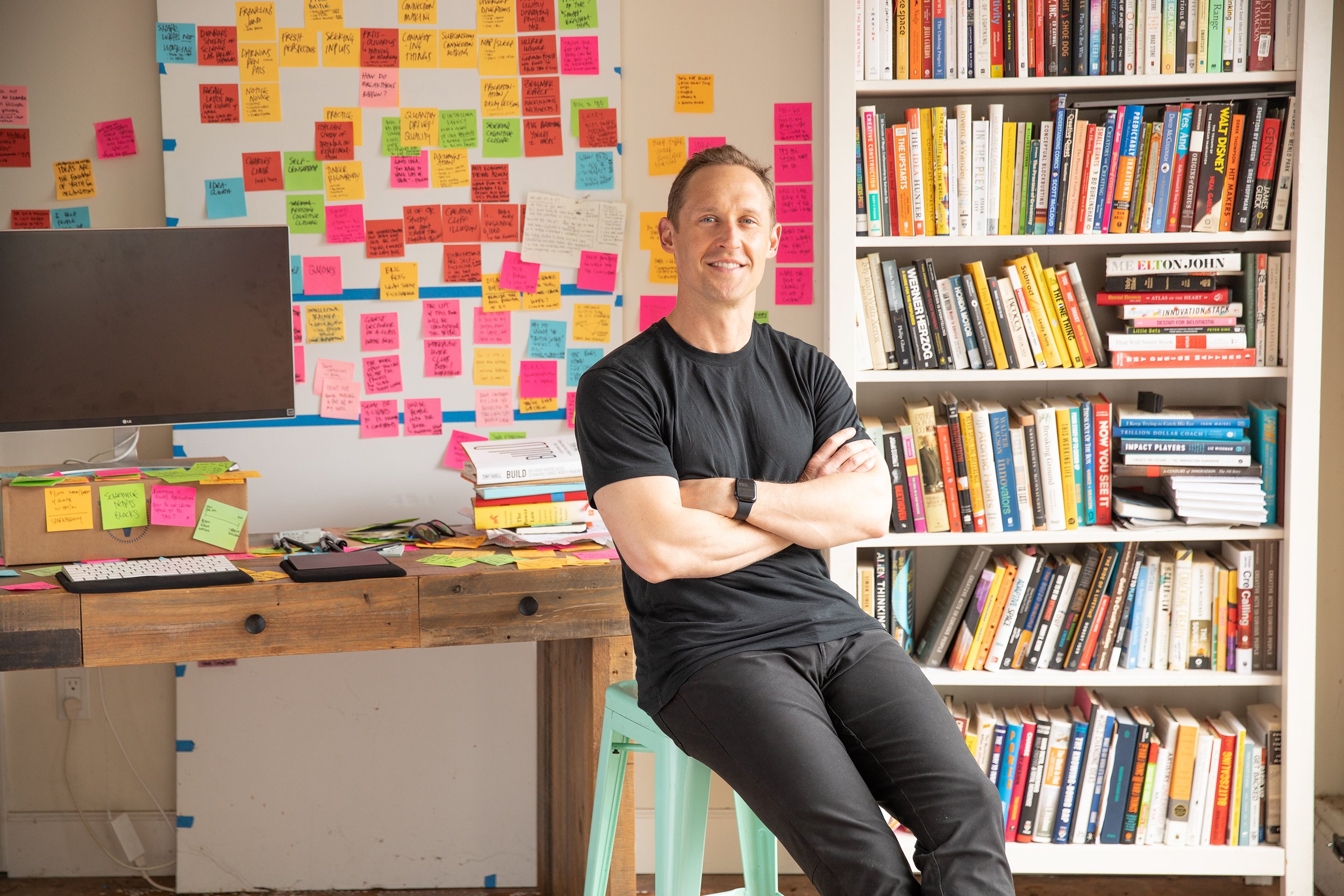
Methods of the Masters
A blog on the art & science of creative action.
Be Interested
This is about the simplest argument for cultivating an array of interests that I’ve ever heard: “The underlying neural process of creativity is quite simple: it’s taking some things we already know and combining them in a new way. You have to realize that the brain is not capable of producing new material from scratch…”
Remind Yourself of Your Identities
Much has been written about the value that diverse perspectives bring to driving fresh thinking. What’s also true is that each individual holds various identities. And research indicates that these can be a source of immense creative potential…
Mind the Gaps & Weak Links
We tend to pay closer attention to established working relationships, when really, it’s weaker ties that often yield more profitable outcomes when it comes to innovation and creativity….
Capture Instead of Compartmentalizing
“Some of the best solutions come at inopportune moments. For some reason, once I step away from the problem, it’s like a good idea almost ‘sneaks up on me’. So I’ve made a commitment to my subconscious that I’m going to write down whatever comes up…”
Leverage Interruptions
Spectacular innovators turn interruptions into serendipitous opportunities for random input. “If I’m going to be interrupted, might as well put it to use,” they think. A fantastic example is Ana Leyva, an alum of LaunchPad11 doing fantastic things at Lelu…
Where’s the Water Cooler Now?
The question I’ve been pondering in recent days is, where’s the “office coffee machine” now? The video conference hardly replicates the conference table, especially for serendipitous interactions. We need is a new kind of water cooler…
Network Without the Yuck
When we think of building our networks, all too often the word conjures up images of sleazy-feeling cocktail hours. Yet loose associations are profoundly powerful sources of leverage. How do we preserve our networks without feeling gross?
Look In Unlikely Places
There’s a great story about Jim Yurchenco discovered the insight that fueled the wildly popular and widely imitated original Apple mouse…
Endure the Risk of a Bad Idea
I once asked David Kelley what he would say to someone who’s intimidated by the volume of material required to get to a good idea. (Depending on one’s field, research suggests anywhere from ~200 on the low end to ~10,000 on the high end)…
Make Time for Exploration
“I try to keep Fridays wide open for exploration. They are my creative days. I keep a stack of stuff reserved for Fridays that I want to look into. Other than a call with two treasured collaborators, I have nothing else planned…”
Signal the value of creativity
One thing I'm always wondering is, "How do leaders create an environment where creativity can thrive?" A few fresh answers have popped on the radar recently, for the benefit of fellow practitioners...
Tom Sawyering (Floating Ideas)
This memory of Steve Jobs reminded me of a tactic that was known as “Tom Sawyering” around the Xerox PARC offices. An informal process of socializing ideas to build momentum…
Reframe the Competitive Set
"I was obsessed with not getting trapped by DVDs the way AOL got trapped, the way Kodak did, the way Blockbuster did…" - Reed Hastings, Founder & CEO of Netflix…
Commission Exploration
“We hit a manufacturing snag that threatened to stall production of a critical new product by 18 months. Over the weekend, we assembled a ‘swat team’ who solved the problem in just a couple of days.”
The Bug List
The other day, my friend and mentor David Kelley told me about a famous old assignment legendary Stanford professor Bob McKim used to give his students: he would tell them to keep a bug list. Mind you, this was decades before programming language became common parlance…
Preserving the expectation of early failure
"It's your fault, really. You're the one who told us to prototype." A CEO friend of mine, with whom I've been discussing the merits of low-res prototyping and rapid iteration in the context of his public company, jokingly placed the blame upon me for a failed scaling effort today…
Indulge a Little Curiosity
Curiosity defines genius, but many of us stifle curious impulses in favor of more "relevant" searches; if we can't rationalize an interest, it gets jettisoned pretty quickly in the name of focus. The irony is, some of history's most prolific and inventive thinkers were insanely curious! Nobel Prize winner Richard Feynman is an excellent example of a curious life…
Willing to Go Off-Road
My friend Philipe Barreaud runs the Customer Innovation Lab for Michelin. He’s the kind of guy who tells the technicians to “hang the sign upside down” in the main office, just to signal the value of seeing things differently and challenging people’s perceptions…
Pixar Notes Day
Ultimately, over the course of a single day (enabled by meticulous planning and thoughtful pre-program correspondence) 1,059 employees “discussed 106 topics in 171 sessions managed by 138 facilitators in 66 meeting spaces across Pixar’s three buildings…”
From Burnout to Breakthrough
The end of the story is, he wins the Nobel Prize. The unexpected part was the twist in the middle of the roller coaster…




















